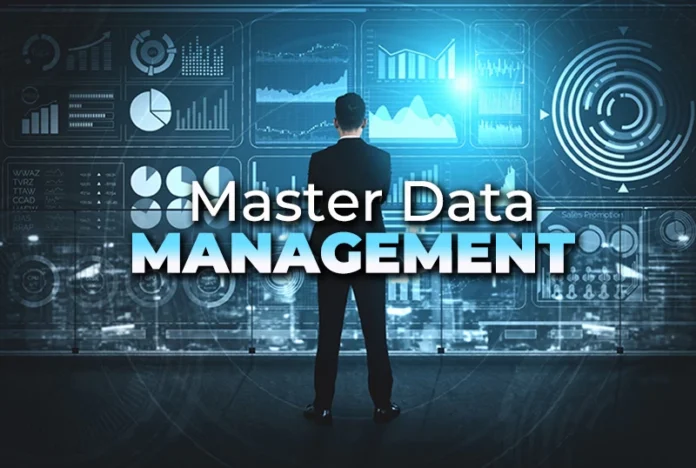Managing data effectively has become indispensable to every organization’s success in today’s business world. It is critical to have an efficient system to manage various types of data, such as customer, sales, and financial data.
That’s where Master Data Management (MDM) comes in. While MDM can benefit organizations, data governance protocols must be established to ensure the success of the MDM process.
In this article, we will examine the Data governance definition, why it is an essential part of MDM, and its role in driving success.
Defined Roles And Responsibilities

Data governance is crucial to MDM because it establishes defined roles and responsibilities. When implementing MDM, different departments within an organization are involved in the process, and they may have the discretion to interpret and use data differently.
Data quality will be good with data governance protocols, and duplicate records will continue to exist. With defined roles and responsibilities, individual departments will clearly understand their specific responsibilities regarding data, including data entry procedures, validation, and updates.
Facilitates Collaboration
Collaboration is essential in ensuring that data quality is maintained throughout the organization. Data governance ensures that data stewards are identified and appointed across business units who can work together to create, modify, and maintain the data standards.
Creating data ownership also helps to enhance accountability, transparency, and reliable data reporting. When employees from different departments collaborate to ensure that data is consistent across different applications, there is a high likelihood that they will get better results.
Improved Data Quality
Data quality is a critical factor in the success of MDM. Poor-quality data can lead to compliance violations, loss of customer trust, and poor decision-making based on inaccurate data.
With data governance protocols, data quality can be improved, and data can be more reliable. Data governance solutions such as data profiling tools, data cleansing, and data standardization procedures help maintain data quality.
In addition, data governance protocols establish rules for data validation, which prevent errors.
Enhanced Data Security

Data governance protocols ensure that data is managed securely and competently. Data governance policies help safeguard data by restricting access to sensitive data and establishing the security protocols required by law.
Similarly, data governance protocols help ensure the organization meets its regulatory obligations by implementing data compliance requirements such as GDPR, HIPAA, and PCI DSS data protection standards. Effective data governance helps avoid data breaches and protects the organization’s reputation.
Strategic Decision Making
Data governance is a critical part of MDM for making strategic business decisions. Effective data governance enables a company to obtain a single version of the truth, improving decision-making processes.
Data governance framework and protocols help ensure that data is appropriately entered, maintained correctly, and made readily available to departments as required. With high-quality data, organizations can analyze data to gain valuable insights, identify trends, and make informed choices about the business.
Cost Reduction
Effective data governance can help reduce costs significantly as organizations cut out data errors, which can be costly regarding resources, resulting in duplicate work. Organizations can save time and money by implementing efficient data governance protocols.
As a result, improved data governance leads to return on investment (ROI) cost savings during implementation and after that, as well as higher-quality data.
Ensuring Regulatory Compliance

Data governance is integral to regulatory compliance in the realm of Master Data Management (MDM). With increasing global emphasis on data privacy and security, organizations must adhere to various regulations like the GDPR in Europe, CCPA in California, and others. Data governance frameworks facilitate this by establishing clear policies and procedures for data handling, storage, and sharing. This not only helps avoid hefty fines and legal repercussions but also strengthens customer trust by demonstrating a commitment to data privacy and security.
Data Lifecycle Management
A key aspect of data governance in the context of MDM is the effective management of the data lifecycle. From data creation and storage to its eventual archival or deletion, every stage requires careful oversight. Data governance ensures that data is accurate, accessible, and securely stored throughout its lifecycle. This process includes regular audits, data cleansing, and updates, ensuring that the data remains relevant and valuable for business decisions. Additionally, effective data lifecycle management under data governance minimizes risks related to outdated or redundant data.
Enhancing Data Accessibility and Integration
Data governance plays a pivotal role in enhancing data accessibility and integration within an organization. In a well-governed MDM environment, data is secured and made easily accessible to authorized personnel, facilitating better collaboration and decision-making. Furthermore, data governance ensures that data from various sources is effectively integrated, providing a unified view of critical information. This integration is vital for comprehensive analytics and insights, enabling organizations to leverage their data fully in strategic planning and operations.
Fostering a Data-Driven Culture

Implementing robust data governance is essential in fostering a data-driven culture within an organization, a key to success in leveraging Master Data Management (MDM). Effective data governance instills a mindset where data is viewed as a valuable asset across all levels of the organization. It encourages employees to rely on data for decision-making, rather than intuition or guesswork. This shift towards a data-centric approach requires not only the right tools and processes but also a change in organizational culture. Data governance frameworks support this transformation by providing clear guidelines on data usage, ensuring that all team members understand the importance of data quality, accuracy, and consistency in driving business success. By embedding these principles into the organizational ethos, companies can fully realize the benefits of their MDM initiatives.
Final Thoughts
In conclusion, data governance is critical for the success of Master Data Management, as it helps establish defined roles and responsibilities, improves data quality, enhances data security, supports strategic decision-making, and reduces costs.
Data governance ensures accurate data, helps maintain regulatory compliance, protects against data breaches, and enhances business efficiency. Therefore, organizations should give considerable thought to data governance before implementing MDM.
By doing so, they can achieve a secure and efficient data management system, improve overall business outcomes, and ultimately drive business success.







